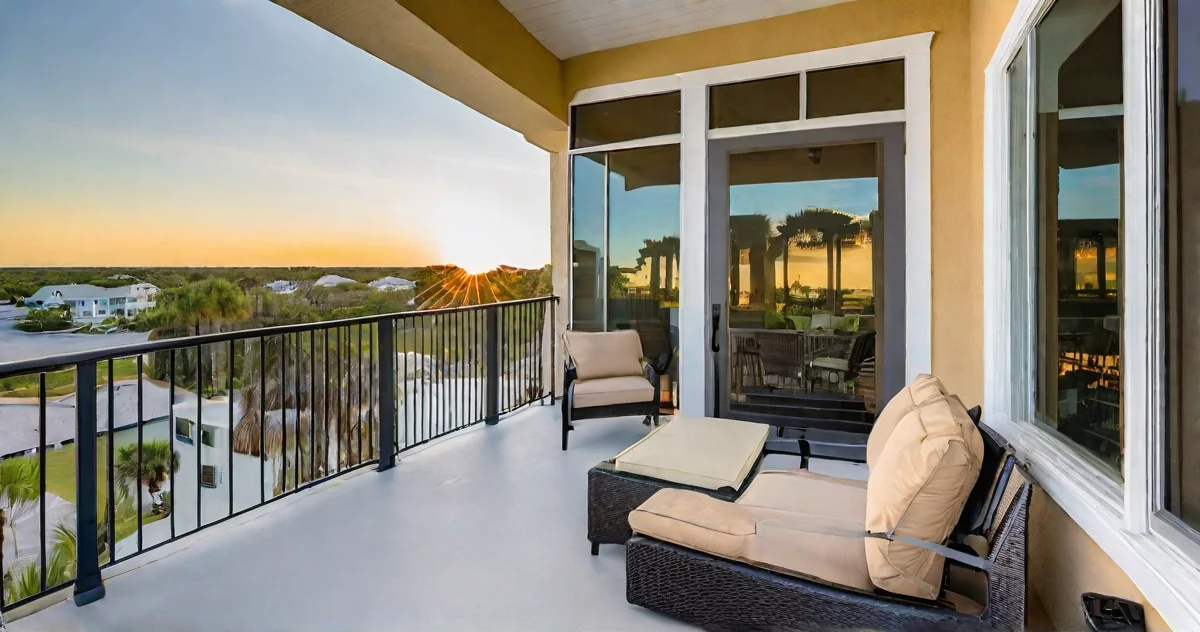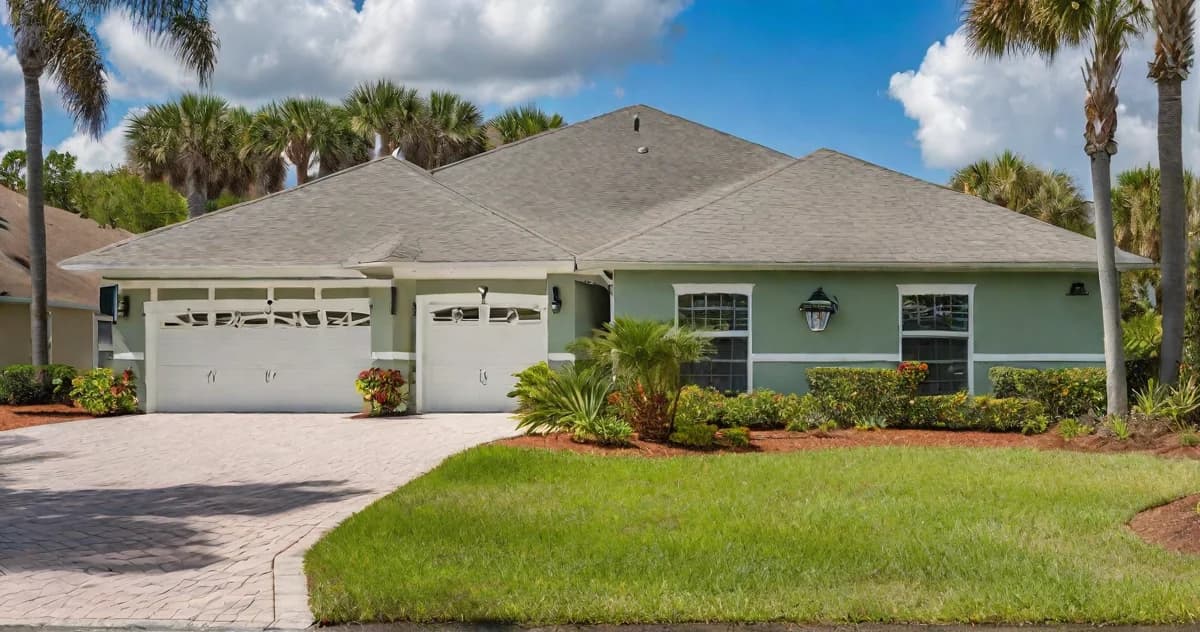Last Updated: October 9, 2025
Pinellas County's 2025 short-term rental regulations require strict compliance for all vacation rental properties in unincorporated areas. With new occupancy limits, mandatory inspections, and operational requirements, understanding these regulations is essential for legal operation and avoiding costly penalties.
This comprehensive guide covers the March 2025 ordinance updates, compliance requirements, and actionable strategies to help you navigate Pinellas County's STR landscape successfully as outlined by the Florida Department of Business and Professional Regulation.
Key Takeaway: Pinellas County requires a Certificate of Use for all short-term rentals in unincorporated areas, with a maximum occupancy of 10 guests, mandatory safety inspections, and annual fees of $450. The application deadline for 2025 is May 31, 2025.
2025 Pinellas County STR Regulations Summary
Key Requirements
- Maximum Occupancy: 10 guests total (2 per bedroom + 2 additional, capped at 10)
- Certificate of Use: $450 annual fee required for legal operation
- Safety Inspection: $150 initial inspection, $100 re-inspection if needed
- Quiet Hours: 10:00 PM to 9:00 AM daily
- Parking: 1 space per 3 guests (rounded up)
- Application Deadline: May 31, 2025
Who Needs Compliance
- Properties in unincorporated Pinellas County
- Rented for less than 30 days more than 3 times per year
- Whole-unit rentals (not room-only in owner-occupied homes)

Occupancy and Parking Requirements
Occupancy Calculation
Formula: 2 guests per bedroom + 2 additional guests, maximum 10 total
| Bedrooms | Calculation | Maximum Guests |
|---|---|---|
| 1 | 2 + 2 = 4 | 4 |
| 2 | 4 + 2 = 6 | 6 |
| 3 | 6 + 2 = 8 | 8 |
| 4 | 8 + 2 = 10 | 10 |
| 5+ | Still capped | 10 |
Parking Requirements
Formula: 1 parking space per 3 guests (rounded up)
| Guests | Required Spaces |
|---|---|
| 6 | 2 spaces |
| 7 | 3 spaces |
| 8 | 3 spaces |
| 9 | 3 spaces |
| 10 | 4 spaces |
Parking Standards:
- Must be paved (driveway or garage)
- Lawn parking does NOT count
- Must be accessible year-round
- Cannot block public right-of-way
Certificate of Use Application Process
Step 1: Pre-Application Preparation
Required Documents:
- Proof of ownership (deed or property appraiser profile)
- Detailed floor plan showing bedrooms and exits
- Parking plan with space count. Layout
- Emergency contact information (within 30 minutes)
- Business tax receipt (if applicable)
Step 2: Online Application
Process:
- Create account at Pinellas County Access Portal
- Navigate to Code Enforcement tab
- Select "File/Maintain a Short-Term Rental Certificate of Use"
- Complete application with accurate information 5.Upload all required documents
Step 3: Safety Inspection
What Inspectors Check:
- Smoke detectors in all bedrooms and common areas
- Fire extinguisher (2A:10B:C rating minimum)
- Emergency egress (properly sized bedroom windows)
- Pool safety barriers (if applicable)
- Adequate parking spaces
- Property condition. Safety
Step 4: Certificate Issuance
After Passing Inspection:
- Certificate issued within 5 business days
- Valid for one year from issue date
- Must be displayed prominently in rental
- Required for all advertising and listings

Operational Requirements
Mandatory House Rules
Quiet Hours: 10:00 PM to 9:00 AM daily
- Outdoor activities restricted during quiet hours
- Amplified sound prohibited
- Fines up to $500 per violation
Required Postings:
- Emergency contact notice at front door
- House rules with occupancy limits and quiet hours
- Certificate of Use displayed prominently
- Pool safety rules (if applicable)
Advertising Compliance
Listing Requirements:
- Maximum occupancy clearly stated
- Quiet hours prominently displayed
- Emergency contact information provided
- Certificate of Use number included
Prohibited Advertising:
- Exceeding approved occupancy limits
- Misleading property descriptions
- False amenity claims
- Violating quiet hour restrictions
Common Violations. Penalties
Frequent Violation Types
| Violation | Penalty | Description |
|---|---|---|
| Occupancy Violations | $500/day | Exceeding 10 guest maximum |
| Parking Violations | $250/day | Insufficient parking spaces |
| Noise Violations | $500/day | Loud parties during quiet hours |
| Documentation Violations | $250/day | Missing required postings |
Enforcement Process
- Complaint Investigation - County receives complaint from neighbor
- Property Inspection - Code enforcement officer investigates
- Violation Documentation - Violations documented and photographed
- Penalty Assessment - Daily fines until violation corrected 5.Appeal Process - 15 days to appeal violation notice
Tips for Passing Inspection
Pre-Inspection Checklist
Safety Equipment:
- ✅ Smoke detectors in all bedrooms and common areas
- ✅ Fire extinguisher (2A:10B:C rating minimum)
- ✅ Carbon monoxide detector if gas appliances present
- ✅ Emergency lighting in hallways and exits
Egress Requirements:
- ✅ Bedroom windows meet minimum size requirements
- ✅ Clear opening width minimum 20 inches
- ✅ Clear opening height minimum 24 inches
- ✅ Sill height maximum 44 inches from floor
Pool Safety (if applicable):
- ✅ Pool barrier minimum 4 feet high
- ✅ Self-closing, self-latching gates
- ✅ No gaps larger than 4 inches
- ✅ Pool alarm system (if required)
Parking Compliance:
- ✅ Adequate paved parking spaces
- ✅ Clear access to all spaces
- ✅ No obstructions or hazards
Cost Analysis
First Year Costs
- Certificate of Use: $450
- Initial Inspection: $150
- Re-inspection (if needed): $100
- Insurance Increase: $500-$1,500
- Total: $1,200-$2,200
Annual Ongoing Costs
- Renewal Fee: $450
- Biennial Inspection: $50 (annualized)
- Insurance Premium: $500-$1,500
- Total: $1,000-$2,000 annually
Revenue Impact
- Occupancy Limitations: Maximum 10 guests regardless of property size
- May reduce rental income potential for larger properties
- Requires careful pricing strategy to maximize revenue
- Focus on quality over quantity for guest experience
Compliance Checklist
Pre-Operation Requirements
- Verify property is in unincorporated Pinellas County
- Check zoning allows short-term rentals
- Apply for Certificate of Use by May 31 deadline
- Pay required fees ($450 Certificate + $150 inspection)
- Schedule safety inspection within 30 days
- Obtain business license if operating as business entity
Property Preparation
- Install smoke detectors in all bedrooms and common areas
- Install fire extinguisher (minimum 2A:10B:C rating)
- Ensure emergency egress with properly sized bedroom windows
- Verify parking compliance (1 space per 3 guests)
- Pool safety barriers if applicable (4-foot barrier, self-closing gates)
- Create detailed floor plan showing all rooms and exits
Required Postings
- Emergency contact notice posted at front door
- House rules with occupancy limits and quiet hours
- Certificate of Use displayed prominently
- Pool safety rules if applicable
Operational Compliance
- Enforce quiet hours (10:00 PM to 9:00 AM daily)
- Monitor occupancy (never exceed approved guest limits)
- Maintain guest records for minimum 2 years
- Register for Tourist Development Tax
- Maintain emergency contact (local person available 24/7)
- Regular property maintenance. Safety checks
Municipal STR Regulations
Largo
- Occupancy: 2 per bedroom + 2 additional, max 8 total
- Parking: 1 space per 2 guests
- Quiet Hours: 10 PM to 7 AM
- Fees: $150 annual business tax receipt
Indian Rocks Beach
- Occupancy: 2 per bedroom + 2 additional, max 10 total
- Parking: 1 space per 2 guests, must be paved
- Quiet Hours: 10 PM to 8 AM
- Fees: $200 annual license fee
- Special: Local emergency contact within 30 minutes
Clearwater
- Occupancy: 2 per bedroom + 2 additional, max 8 total
- Parking: 1 space per 2 guests
- Quiet Hours: 10 PM to 7 AM
- Fees: $100 annual registration fee
- Special: Property manager must live within 30 miles
Gulfport
- Occupancy: 2 per bedroom + 2 additional, max 6 total
- Parking: 1 space per 2 guests
- Quiet Hours: 10 PM to 8 AM
- Fees: $150 annual license fee
- Special: Owner must live within 25 miles
Investment Considerations
Due Diligence Before Purchase
- Verify Zoning - Confirm property allows short-term rentals through Pinellas County Planning
- Check Parking - Ensure adequate paved parking spaces exist
- Assess Property Condition - Factor in required safety upgrades
- Review HOA Rules - Some communities prohibit STRs regardless of zoning
- Calculate Compliance Costs - Budget for permits, inspections, and ongoing fees as outlined by Florida Realtors®
Budgeting for Compliance
- Initial Costs: $600-$700 first year (Certificate + inspection)
- Annual Costs: $450-$550 ongoing (renewal + biennial inspection)
- Insurance Premiums: Expect 20-30% increase for STR coverage
- Safety Upgrades: Smoke detectors, fire extinguishers, egress improvements
- Professional Services: Consider hiring local property manager
Maximizing Revenue Within Limits
- Focus on Quality - Premium amenities justify higher rates
- Target Right Market - Families and groups that fit occupancy limits
- Optimize Pricing - Dynamic pricing based on demand and regulations
- Enhance Guest Experience - Exceptional service compensates for occupancy caps
- Consider Long-term Rentals - Mix of STR and LTR for maximum income
Conclusion
Understanding and complying with Pinellas County's Certificate of Use requirements and ten guest maximum rule is essential for operating a successful short-term rental business. With proper preparation, attention to detail, and ongoing compliance, you can avoid costly violations and build a sustainable rental operation.
The key to success is working with experienced local professionals from the Suncoast Tampa Association of REALTORS who understand the regulations, can help with compliance, and provide ongoing support for your STR business. For tourism and visitor insights, Visit St. Pete/Clearwater provides valuable market data.
Related Articles
- Pinellas County STR Inspection Requirements
- Pinellas County Home Buying Guide 2025
- Tampa Bay Real Estate Market 2025
- St. Petersburg FL's Top Neighborhoods
Ready to comply with Pinellas County's STR regulations? Contact our team for personalized guidance on Certificate of Use applications, compliance requirements, and ongoing operational support.
Disclaimer: This guide is for informational purposes only and does not constitute legal, financial, or regulatory advice. Pinellas County regulations change frequently and individual circumstances vary. Always consult with qualified legal, financial, and regulatory professionals before making compliance decisions.
This guide is updated regularly to reflect current market conditions. For the most current information, contact Troy Nowak directly.
